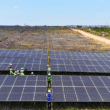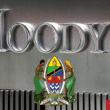TanzaniaInvest has interviewed Mohamed Issa, Chairman of Yusra Sukuk Company, Tanzania’s first Islamic brokerage and investment advisory firm.
Islamic finance is a growing global industry based on principles of ethical investment and risk-sharing rather than interest. With only one Islamic bank currently operating in Tanzania, the country is still in the early stages of adopting this form of finance. However, recent developments like the new Takaful insurance guidelines show progress towards a comprehensive regulatory framework.
In this interview, Issa provides an overview of Islamic finance and its applicability beyond Muslims. He explains key instruments like Sukuk bonds, as well as the high latent demand in Tanzania. With the right ecosystem, Islamic finance can channel significant funding into Tanzania’s development priorities. Yusra Sukuk itself aims to catalyze the market by issuing 30 Sukuk annually. Though formal adoption is still forthcoming, Issa highlights the bright future of Islamic finance in supporting Tanzania’s growth through ethical and equitable principles.
TanzaniaInvest: Could you explain the overall concept of Islamic finance and what it encompasses?
Mohamed Issa: Islamic finance is not just for Muslims, though the name suggests it. It is a financial system based on the principles of Islamic economics and business laws that comply with Sharia teachings.
“Islamic finance is not just for Muslims, it is a financial system based on the principles of Islamic economics and business laws that comply with Sharia teachings.”
The key prohibition is interest (riba), but Islamic finance also prohibits excessive uncertainty (gharar), and investing in prohibited sectors like gambling, alcohol, pornography, tobacco, weapons manufacturing etc. It operates on principles of risk-sharing, asset-backing, and promoting ethical investments.
Some key concepts in Islamic finance are:
– Musharaka – A partnership where profits and losses are shared between the provider of capital and the entrepreneur/manager.
– Mudaraba – A partnership where one party provides the capital and another manages the business. Profits are shared but financial losses are borne by the capital provider.
– Murabaha – A sale with an agreed-upon profit margin added to the costs. The bank purchases the asset and resells it to the customer at cost plus a profit.
– Ijara – A leasing arrangement with an option to purchase. The bank buys the equipment or asset and leases it out while retaining ownership.
Islamic finance is now recognized globally by all the major financial institutions like the World Bank Group, IMF, UNDP and others. The World Bank Group includes the IBRD, IDA, IFC, MIGA and more. The IMF now partners with Islamic finance institutions. This global acceptability disproves the myth that Islamic finance is only for Muslims.
TanzaniaInvest: Why does Islamic finance have such wide global appeal even among non-Muslims?
Mohamed Issa: Currently 15-25% of Islamic finance users globally are non-Muslims. They are attracted by the ethical principles it promotes. Islamic finance offers avenues for socially responsible and equitable investment and financing. For example, the Vatican suggested Islamic finance can restore confidence after the 2008 financial crisis. Its former Pope Benedict XVI was quoted saying banks should look at Islamic finance rules to reform the system.
“Currently 15-25% of Islamic finance users globally are non-Muslims. They are attracted by the ethical principles it promotes.”
TanzaniaInvest: Could you give us an overview of where Tanzania stands in terms of the regulation and adoption of Islamic banking and finance?
Mohamed Issa: The adoption is still at an early stage in Tanzania. We have only one fully-fledged Islamic bank which is Amana Bank. Some other banks have Islamic banking windows or departments, but they do not provide separate reporting or disclosure on their Islamic finance business.
Guidelines for Takaful were recently approved by the authorities. Takaful refers to Islamic insurance which is based on mutual assistance and risk-sharing. We also helped formulate Sukuk (Islamic bonds) guidelines which are now in the final stages of approval.
However, a comprehensive regulatory framework for full-fledged Islamic banking is still awaited from the central bank. We have been engaging with them on developing these regulations and they are expected sometime this year.
Overall, the current Tanzanian regulations do accommodate and allow the provision of Islamic financial services even within the conventional banking framework. But specific regulations will allow it to grow further.
“The current Tanzanian regulations do accommodate and allow the provision of Islamic financial services but specific regulations will allow it to grow further.”
TanzaniaInvest: You mentioned Sukuk or Islamic bonds. Could you explain how these Islamic bonds work to raise financing in a Shariah-compliant manner without interest payments?
Mohamed Issa: The fundamental difference between conventional bonds and Sukuk is that Sukuk represents ownership interests in tangible underlying assets. So unlike a conventional bond where you lend money to the issuer and receive fixed interest, Sukuk gives you partial ownership of a real asset from which you earn returns based on the profit generated by that asset.
Instead of receiving an interest rate return like in a conventional bond, the Sukuk investors receive periodic returns from the profits generated by the business operations. This avoids riba while mobilizing financing in accordance with Islamic principles.
TanzaniaInvest: Are there any estimations or studies available on the potential demand for Islamic banking and finance products in the Tanzanian market?
Mohamed Issa: Unfortunately, concrete data or studies estimating the market demand are lacking as of now. However, we can reasonably estimate that there is huge latent demand based on factors like the oversubscription of all Sukuk issues in Tanzania so far. It indicates appetite when appropriate Shariah-compliant avenues are available.
One specific study conducted in 2012 by consultants from Malaysia assessed the demand for Takaful or Islamic insurance in Tanzania. They surveyed the entire country including Zanzibar and found that the demand for Takaful was very large across Tanzania. So while formal studies are limited, industry indicators point to high demand. Data availability will improve as the industry grows.
“While formal studies are limited, industry indicators point to high demand for Islamic insurance in Tanzania. Data availability will improve as the industry grows.”
TanzaniaInvest: In your opinion, what kind of potential does Islamic finance have in supporting Tanzania’s growth in the coming years?
Mohamed Issa: The potential impact is truly immense if fully leveraged. With appropriate regulations and tax/policy support along with awareness-building, Islamic finance can channel significant global funding from regions like the Middle East into Tanzania’s productive sectors and priority projects. It can attract ethical investors to important areas like infrastructure, agriculture, SME financing and social services.
“With appropriate regulations and tax/policy support along with awareness-building, Islamic finance can channel significant global funding from regions like the Middle East into Tanzania’s productive sectors and priority projects.”
Islamic finance has funds looking for Shariah-compliant avenues across the Middle East, Europe and beyond. With the right local partnerships, this dry powder can be deployed for Tanzania’s development. We also must develop links to large Islamic banks and funds to tap this opportunity. The responsibility lies with both regulators and market participants to implement the Islamic finance vision for supporting Tanzania’s growth in a timely, collaborative manner. The fundamentals and appetite are strong, so the future is bright if all parts move together.
TanzaniaInvest: To conclude, what are the ambitions and offerings of Yusra Sukuk Company?
Mohamed Issa: Yusra Sukuk Company aims to be a leader in providing Shariah-compliant capital market services in Tanzania. We have two main business lines – one is dealing in Islamic securities, and the other is Islamic investment management.
On the securities side, we are licensed dealers for Sukuk and other Islamic fixed-income securities. We focus on structuring and issuing corporate Sukuk bonds to mobilize financing for private sector companies in Tanzania. On the investment side, we aim to provide compliant investment management and advisory services to institutional and retail investors in Tanzania.
We plan to introduce diverse Shariah-compliant investment avenues like real estate funds, equities, mutual funds and more. Our target is to issue a minimum of 30 Sukuk every year to catalyze the Islamic capital markets. We already have a strong pipeline with intended Sukuk issues of over USD 100 million in mining, agriculture, industrial and other sectors.








